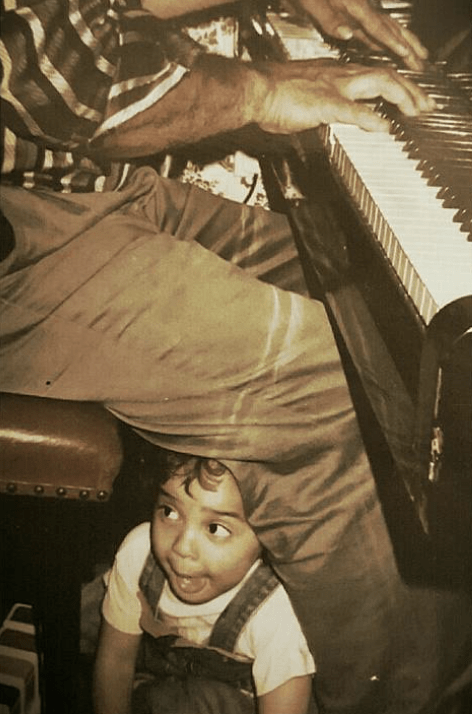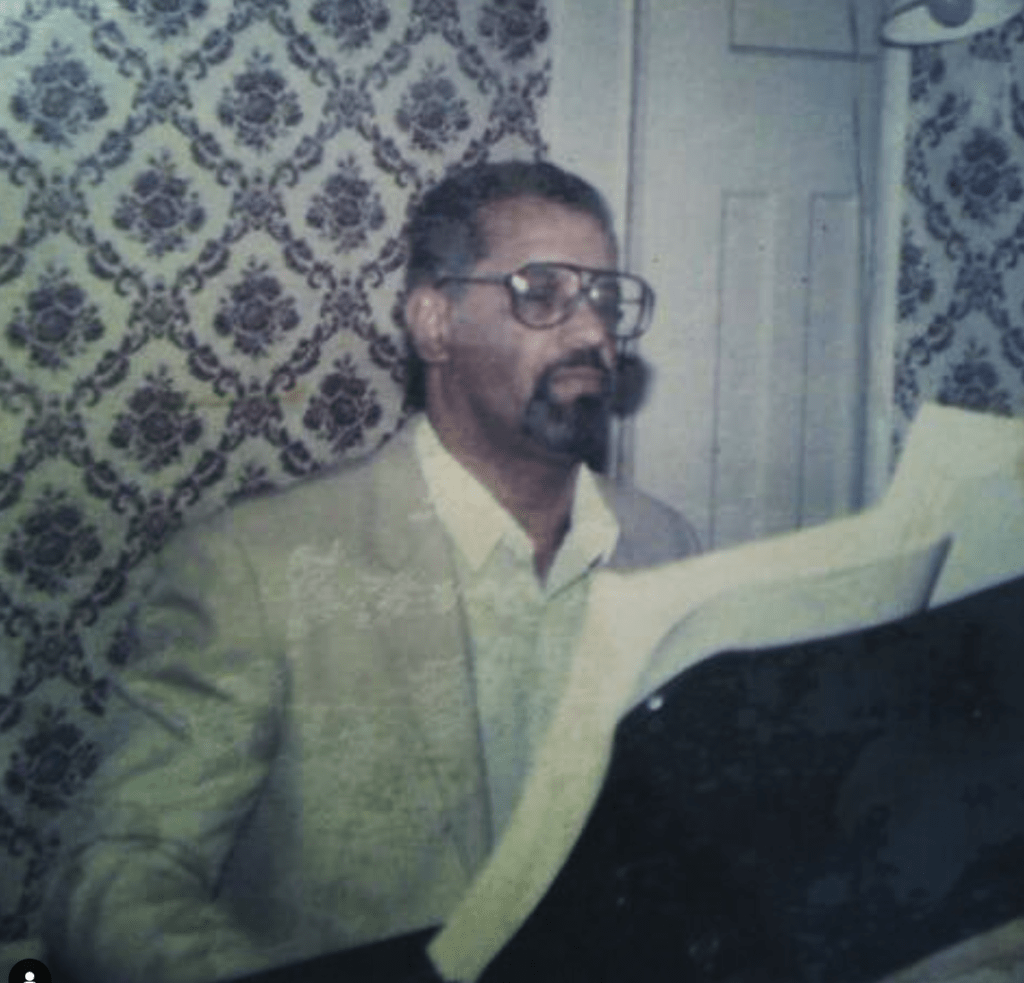Music, they say, is the language of the soul. For me, that journey into the soulful world of melodies began much earlier than most, rooted in the cozy corners of my childhood home, guided by the gentle hum of my dad’s piano. Long before I knew the complexities of scales or the nuances of rhythm, I was swaying to the comforting notes of my dad’s piano. Every evening I sneak under the piano, like clockwork, he’d play and I’d be listening to the sound of the keys, the house would be loud with melodies from classical compositions to his own style.

Little did I know, these sessions would be my first informal music lessons. Seated beside him under the piano chair, I would try to match the notes he played with my voice, turning these sessions into delightful duets.I knew one day I was going be a singer.
As the years progressed, so did my passion for singing. I moved from mimicking popular songs to creating my own renditions, each bearing the subtle influences of those piano-backed lullabies from my childhood. My voice became stronger, my range wider, but the essence—the echo of my dad’s piano—remained at its core. As I grew more comfortable with my voice and more confident in my abilities, a spark of creativity ignited within. I began to wonder, “What if I took these songs that I love and gave them a twist that’s uniquely mine?”

It started subtly. Maybe a change in tempo here, an improvised riff there, or even altering the song’s entire arrangement to fit a different genre. These experiments were initially for my ears only, but as I shared them with close friends and mentors, the feedback was encouraging.

Since the passing of my Father in 1998 my musical journey has evolved into a poignant tribute, ensuring his spirit continues to thrive through the power of song. My confidence grew stronger, so did the urge to share my music with the world. From school talent shows to local gigs, and eventually larger stages, every time I stepped onto a stage or held a microphone, it felt as if he was right there beside me, cheering me on, his spirit echoing in every note from his piano I began to perform publicly.
Music is a powerful catalyst, for me, two such iconic figures towered above the rest: Aaliyah, Tamia and Mariah Carey.
To say Aaliyah, Tamia Mariah Carey were my influences would be an understatement. They were the guiding stars, the music that whispered in my ear. Their timeless contributions to the world of music didn’t just inspire me—they empowered me, helping me find and refine my voice in the vast symphony of the industry. I began to challenge my vocal boundaries, experimenting with various scales and pitches.
Let’s delve into the journey of finding one’s unique musical voice.
Finding Your Rhythm: How to Discover Your Unique Sound
In the vast universe of music, every artist seeks to find their distinct resonance – that unmistakable sound that sets them apart. But how does one navigate through the endless influences and inspirations to discover their own sonic signature?
1. Dive Deep Into Your Influences
Before you can differentiate yourself, understand who has shaped you. Listen to artists you love, spanning various genres and eras. Recognise the nuances that resonate with you. It’s often a blend of these influences that will form the bedrock of your unique sound.
2. Experiment Unabashedly
Try everything. Dabble in genres you’ve never considered. Experiment with various instruments, rhythms, and production techniques. Sometimes, your sound is waiting in the most unexpected places.
3. Trust Your Instincts
While feedback is invaluable, it’s crucial to trust your intuition. If a particular style or melody feels right, pursue it, even if it goes against conventional wisdom. Your sound should be an authentic reflection of who you are, not what the market dictates.
4. Embrace Vulnerability
Some of the most iconic songs are born from raw, personal emotions. Don’t shy away from channeling your experiences, fears, dreams, and vulnerabilities into your music. It not only makes your sound authentic but also builds a deeper connection with listeners.
5. Collaborate
Collaborating with other artists can introduce you to new styles, techniques, and perspectives. It can challenge and push your boundaries, helping you refine and redefine your sound.
6. Continuous Learning
The musical landscape is ever-evolving. Stay curious. Learn new instruments, understand emerging production techniques, and familiarise yourself with trends. This not only keeps your sound contemporary but can also lead to unexpected discoveries about your musical preferences.
7. Perform Live
There’s something about a live audience that sharpens an artist’s sense of their sound. The immediate feedback, the energy exchange, the on-the-spot improvisations – all these can offer insights into what feels most ‘you.’ I remember performing live was the best feeling in my early 20s I loved every minute of it.

8. Record, Reflect, Refine
Regularly record yourself. Sometimes, listening to your creations can offer an objective perspective. Analyze these recordings, identify patterns or recurring elements that you gravitate towards, and refine your sound based on these reflections.
9. Accept Evolution
Your sound today might not be your sound five years from now, and that’s okay. As artists grow and evolve, so does their music. Embrace change and allow your sound to mature organically.
Conclusion
Discovering your sound is a continuous journey of introspection, exploration, and expression. It’s not about fitting into a mold but breaking free from it. As you traverse this path, remember that your unique sound lies at the intersection of your influences, experiences, and the raw, unfiltered essence of who you are. Celebrate it, nurture it, and let it sing!


Leave a Reply